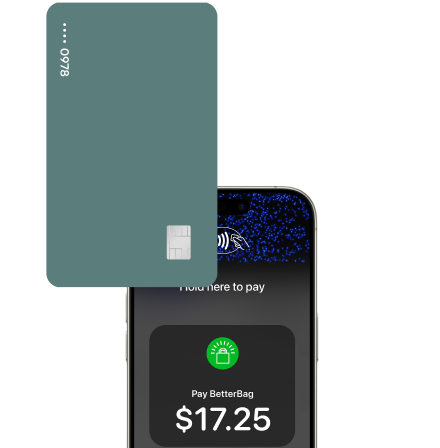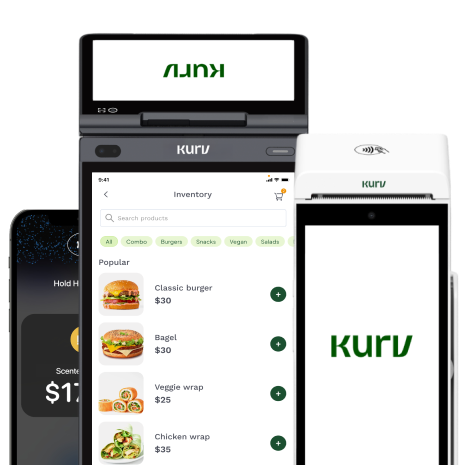If your business doesn’t accept digital payments, you’re missing out. And, if your business processes transactions online, whether through a website, emailed invoices, or text-to-pay platforms, you’ll need a solid payment gateway to run them.
Key Takeaways
- Fees are a part of the payments process no matter what type of gateway you use.
- Different varieties of payment gateways exist for different business models.
- Fee transparency and integrations are just a few of the variables you’ll have to consider in making the decision of which gateway is best for your operation.
While there are some payment gateway fees, the value often outweighs the costs. Statista projected the total transaction value for digital payments to reach over $11 trillion in 2024[1]Statista “Payments – Worldwide“. Accessed August 7th, 2025. , so using a payment gateway is a smart move if you want access to this payment method. Ultimately, you want a gateway that can scale and grow with your business as transaction volume increases without paying an arm and a leg for the service.
Your choice of a payment gateway will dictate customer experience, cash flow, and more. It’s a significant decision that should be handled with care. Thankfully, you’re a step ahead.
We’ll walk you through choosing the right payment gateway, what to expect from the associated fees, and more. Let’s dive in.
What is a Payment Gateway?
A payment gateway is tech that securely processes online transactions, allowing customers to pay for your products or services securely. You can think of it as the digital version of the machine you’re used to seeing at checkout. A gateway tokenizes or encrypts payment information into a digital package and moves that package between customer and business bank accounts. Each payment processor offers some form of payment gateway, some outfitted with more features than others.
What are Gateway Fees?
Your business will incur charges when using a payment gateway. These can include access to the fee, setup, and ongoing account use. A gateway gives you secure back-end access to the payment networks that route transactions. Each transaction uses bandwidth that costs a few pennies per transaction. In other words, you can expect to pay additional fees.
Gateway fee types
These fees vary depending on vendor and payment method. Here are some examples of the types of gateway fees you can expect to pay with most vendors:
Setup Fees
- Your business may be subject to a one-time setup fee. This fee covers integrating the gateway with your payment software, adding the service to your account, and initial configuration.
Monthly Fees
- Your operation may also incur monthly gateway fees—a fixed amount charged to keep your account active, regardless of transaction volume.
Transaction Fees
- Each payment gateway charges a fee per transaction. This fee can be pre-set or percentage-based, depending on transaction volume (sometimes, both). It covers usage and access to the payment networks.
These gateway fees are added to your overall processing costs. For example, if you process debit and credit cards regularly at an average effective rate of 2.5%, add these fees to your overall cost for processing online transactions through a payment gateway. You’ll still be subject to the standard payment processing fees, including interchange, association, PCI compliance, annual, refund, and chargeback fees. Gateway fees just get added on top.
Payment Gateway Cost & Fee Comparison
When finding the right gateway for the right price, you may encounter competing solutions. These solutions offer various compatibilities, integrations, and price structures. Let’s break down some of the most popular gateway options by price.
Note: All prices are listed as of the date of publishing but may be subject to change over time.
Authorize.net
Authorize.net is one of the most popular gateways. Visa owns it and offers a few ways to use its services:
Gateway Only
- If you have a merchant account with a different provider, you can contact Authorize.net to create a gateway-only connection. Many merchant account providers prefer to integrate with Authorize.net.
- This plan includes a $0.00 setup fee, a $25.00 monthly fee, and a $0.10 per transaction fee.
- As mentioned, these fees are on top of the processing rates you pay through your merchant account.
Payment Gateway with a Merchant Account
- If you don’t have a merchant account with another provider, you can use Authorize.net as both your merchant account provider and payment gateway provider.
- Should you choose to exercise this option, you will pay the same $25.00 payment monthly gateway fee, $0 setup fee, and a processing rate of 2.90% on all volumes and $0.30 per transaction.
NMI (formerly USAepay)
- NMI is compatible with many devices and providers and offers one of the most robust payment gateways on the market. To use NMI, you must set up a merchant account with a compatible provider before contracting them for services.
- Providers like Stripe, Square, and PayPal do not work with NMI because you do not have access to a standalone merchant account through these providers. Instead, they are payment aggregators that give you access to their merchant account instead of your own.
- To use NMI, the costs for the gateway are an additional (roughly) $20 per month and $0.13 per transaction. Note that the actual cost will vary depending on the vendor you contract through.
Stripe
- Stripe is an incredibly popular and rapidly growing payment gateway provider that integrates with many existing website platforms, such as WooCommerce and Shopify. Here are the costs.
- To use Stripe, you can expect to pay no specific gateway fees, but a processing rate of:
- 3.40% and $0.30 per transaction (2.90% base rate + 0.50% fee for online processing).
- An additional 1.50% for international cards
- And an additional 1.00% for currency conversion
- More, depending on the add-ons and customizations you choose.
PayPal
- Almost everyone has heard of PayPal, as it offers excellent payment gateway functionality for merchants and a trusted and secure service for customers.
- To use the PayPal gateway, you can expect to pay no specific gateway fees, but a processing rate of:
- 3.49% and $0.49 per transaction
- More, depending on the add-ons and customizations you choose.
Here are two other popular options if you’re still in the market for an alternative:
Square
- Square is primarily designed for in-person transactions. Its functionality caters to small businesses operating in person, such as pop-ups and farmer’s market vendors.
- To use the Square payment gateway, you can expect to pay no specific gateway fees, but a processing rate of:
- 2.90% and $0.30 for the transaction online
- Or 3.50% and $0.15 for the transaction if you or your customer uses a card on file or exercises manual entry.
- More, depending on other potential factors (like international cards).
Ayden
- A slightly less common but equally viable option for your payment gateway needs is Adyen. As a service, it is much more common internationally (note that its base prices are in Euros).
- Ayden facilitates eCommerce, mobile, electronic and POS payments.
- With Adyen, you can expect to pay no setup or monthly fees for the gateway. The user pays €0.11 per transaction plus pass-through costs as listed on the Ayden website.
Variables that may Affect Payment Gateway Charges
Base gateway costs will vary depending on your provider. However, other factors, such as foreign transaction fees and third-party integrations, may affect your overall payment gateway charges.
Foreign transactions
Cards issued in another country generally have a different base currency than US dollars. To successfully process those cards, your payment provider must usually convert the currency in question to American currency. This conversion incurs additional fees due to processing and foreign exchange costs, plus a buffer to account for fluctuations. As such, processing many cards from another country often results in significant additional fees. If your gateway is also your payment provider, you can expect to pay foreign transaction fees through them.
Payment options
It may cost more to accept extra payment options. Basic payment gateways accept credit and debit cards entered manually through the portal. Add functionality to make payments as easy as possible for your customers, including options like Apple Pay and Google Wallet, QR codes, etc. Of course, this process sometimes incurs additional fees.
Did you know…
The exact volume of additional fees and whether or not they’re applicable to your business will depend on your payment gateway provider. For example, adding a text-to-pay or invoicing service may incur further costs.
Different card types
Some card types also incur additional fees. Every payment gateway can accept Visa and MasterCard, and almost all can accept Discover. However, additional card types, like American Express, may require additional agreements and fees.
Add-ons
Most payment gateway providers also offer additional functionalities through branded add-ons, but these offerings vary by provider. Some gateway providers can add compatible accounting software for an extra charge, while others can provide membership functionality or paid customer portal integration. When combined with third-party integrations, your payment gateway’s options are endless. However, these supplemental functionalities often come with additional fees. Choose wisely.
3rd Party Integrations
Most payment gateway providers work well with others. This means you can integrate your gateway with your accounting software, website, appointment-setting program, merchant services provider, shipping company, and more. Adding integrations adds functionality that can benefit you and your customers; however, this functionality is rarely free.
How to Get The Lowest Payment Gateway Pricing
Evaluate anticipated usage to get the lowest payment gateway pricing. Plan to use a payment gateway infrequently for low-dollar-amount transactions. It is more cost-effective to go with the payment gateway that charges no fees on a monthly or per-transaction basis. This is because they integrate the actual cost of the gateway into the processing rates you pay, meaning that your processing cost is likely higher per transaction but lower overall.
If you process a large number of transactions or a high dollar volume, it may make more sense to choose the gateway with a monthly and per-transaction fee but lower overall processing costs per transaction.
To explain this concept with an example, using PayPal or Stripe gives you access to their payment gateway for free; you have to pay their processing costs of roughly 3.50% and $0.30 per transaction (keep in mind, this is an estimation).
If, on the other hand, you have a merchant account through a complete merchant services provider and process a large number of transactions each month, you’ll pay an average of 1.95% and $0.10 for a transaction. However, you then have an additional $25 a month and $0.10 per transaction for the gateway.
Considerations When Researching Gateways
When considering what gateway will make sense for your business, consider fee transparency, necessary add-ons, the integrations your company and its customers could benefit from, and overall costs. Let’s break these down a little further.
Fee Transparency
- One of the best places to learn about a company’s fee transparency practices is online review sites like TrustPilot, Merchant Maverick, and Yelp. If companies mark up or add hidden fees, there’s likely a complaint about it somewhere. In other words, read the terms and conditions carefully.
- Review the agreement you’re signing. Click to open privacy policies and terms and conditions pages to scan for unexpected fees. If you have a digital version of these pages, you can do a Control (or Command) + F and type in “$” or “%” to see what pops up.
Payment Options and Add-Ons Needed
- Envision your ideal processing environment. If your retail store is looking for a gateway, you likely need compatibility between your point-of-sale software, accounting software, payroll, etc. Consider gateways compatible with systems you already use.
- Your ideal client may have different desires for your payment options. Younger demographics in urban areas tend to prefer mobile wallet compatibility, while older demographics in wealthier communities may prefer American Express compatibility.
Integration Support
- If you already have systems for many aspects of your business, you’ll want to find a payment gateway that integrates with as many of them (if not all) as possible. Integration makes it easier for you to streamline payment acceptance and protect yourself against the threat of fraud and breaches.
- Evaluating your business environment isn’t just important when choosing a payment gateway provider. It’s essential. Take your time, do your research, and stay focused.
Frequently Asked Questions
What is a typical payment gateway integration cost?
The cost of a typical payment gateway integration will vary depending on the vendor and the integration. Some providers include a free payment gateway because that is their primary product offering, but they charge a higher per-transaction fee.
Other providers charge a moderate setup fee as a one-time integration cost and a monthly and/or per-transaction fee for continued gateway use.
Suppose you want to design your payment gateway for maximum customizability for your website or online store. In that case, you can expect to pay anywhere from $20,000 to $200,000+ for the development costs (depending on the complexity of the integration).
Are there any free payment gateways?
Many payment providers offer free access to their payment gateway and only charge you for the amount you use.
In this example, this would mean $0.00 in setup costs, $0.00 in monthly expenses, somewhere between 2.75% and 4.0%, and $0.25-$0.45 per transaction in fees charged on the dollar amount processed through the gateway. Companies like Stripe and PayPal have this cost structure.
Other providers may charge a setup, monthly, or per-transaction gateway fee in addition to processing costs. Depending on your volume, this may be better than processing through a “free” payment gateway.
Which payment gateways have the lowest fees?
The lowest cost gateway for you will depend on the amount of processing you do through it. Some gateways charge you on a one-time, monthly, or per-use basis for access to the payment gateway and standard processing costs.
Other payment gateways charge nothing for the gateway but have much higher processing costs. Your best and lowest fee option will depend on your processing volume and the frequency at which you use your payment gateway.
A free payment gateway with higher processing costs may make more sense if you process a low amount or infrequently. If, on the other hand, you process very frequently or process a high dollar amount regularly, it’s typically cheaper to use a provider like Authorize.net paired with a complete merchant account. Auth.net charges a nominal monthly fee and a per-transaction fee for access to the gateway, but your provider likely passes through the processing costs at a lower rate.
Is it cost-effective to build a payment gateway?
Building a payment gateway from scratch is rarely the most cost-effective option. Unless you have a particular processing flow and an extremely profitable business, it’s better to integrate your website with an existing payment provider to access their payment gateway.
Many payment providers also offer customization options to make it feel like you have a custom payment gateway without the development cost. This option may be worth considering if you have a complicated business model or another justifiable reason for developing your payment gateway. Still, it would be an exception, not the norm.



























